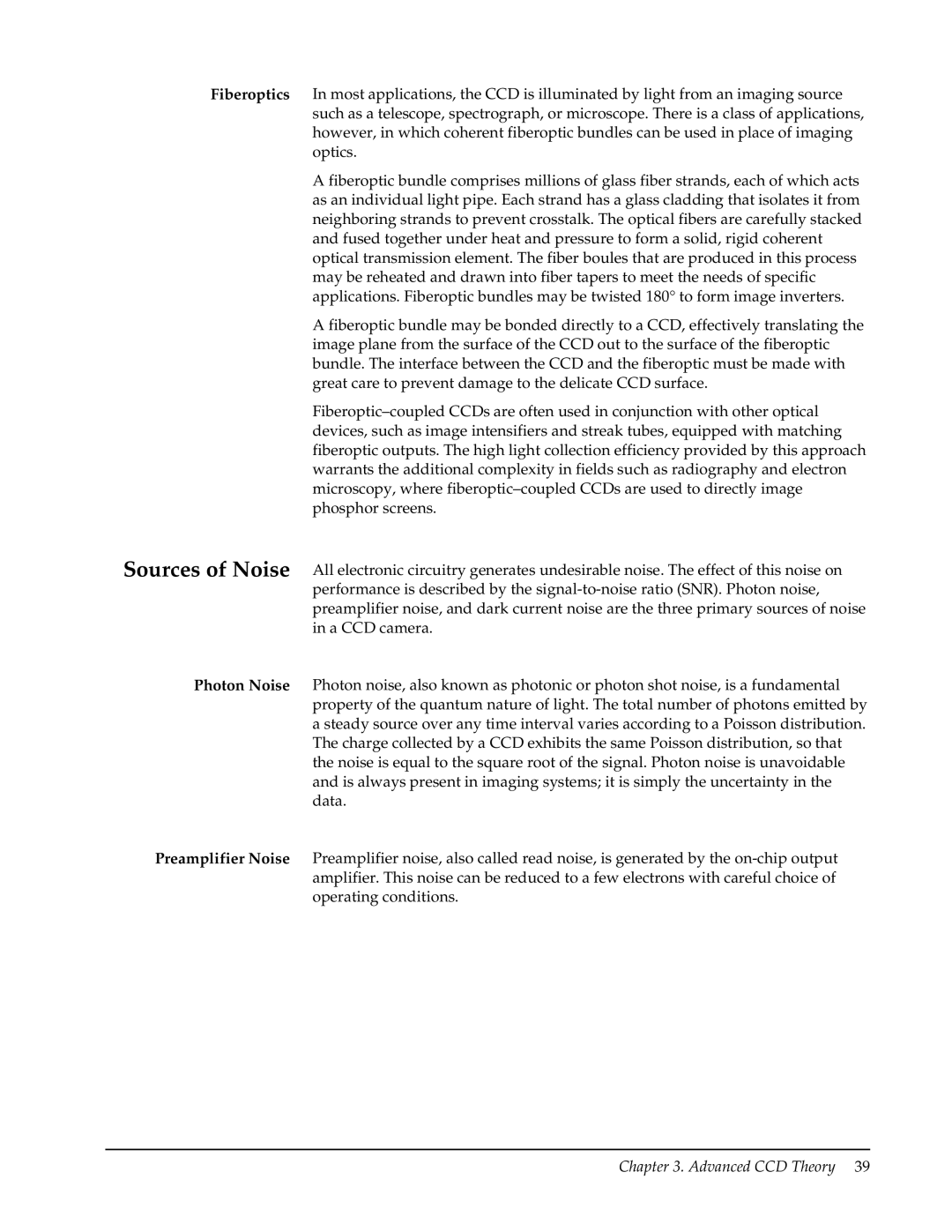Fiberoptics
Sources of Noise
In most applications, the CCD is illuminated by light from an imaging source such as a telescope, spectrograph, or microscope. There is a class of applications, however, in which coherent fiberoptic bundles can be used in place of imaging optics.
A fiberoptic bundle comprises millions of glass fiber strands, each of which acts as an individual light pipe. Each strand has a glass cladding that isolates it from neighboring strands to prevent crosstalk. The optical fibers are carefully stacked and fused together under heat and pressure to form a solid, rigid coherent optical transmission element. The fiber boules that are produced in this process may be reheated and drawn into fiber tapers to meet the needs of specific applications. Fiberoptic bundles may be twisted 180° to form image inverters.
A fiberoptic bundle may be bonded directly to a CCD, effectively translating the image plane from the surface of the CCD out to the surface of the fiberoptic bundle. The interface between the CCD and the fiberoptic must be made with great care to prevent damage to the delicate CCD surface.
All electronic circuitry generates undesirable noise. The effect of this noise on performance is described by the
Photon Noise Photon noise, also known as photonic or photon shot noise, is a fundamental property of the quantum nature of light. The total number of photons emitted by a steady source over any time interval varies according to a Poisson distribution. The charge collected by a CCD exhibits the same Poisson distribution, so that the noise is equal to the square root of the signal. Photon noise is unavoidable and is always present in imaging systems; it is simply the uncertainty in the data.
Preamplifier Noise Preamplifier noise, also called read noise, is generated by the
